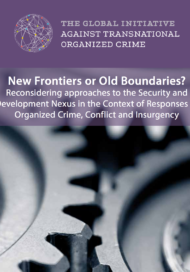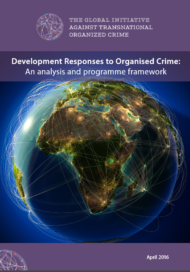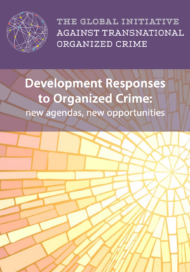Posted on 23 Sep 2015
The international debate has shifted to consider organized crime as an actual driver of fragility, conflict and weak rule of law, rather than just as a symptom. This indicates it is no longer solely a security and justice issue, but also one that is relevant for ministries of foreign affairs and that directly affects the ability to work towards the proposed Sustainable Development Goals (SDGs) on health, the environment and peaceful societies. The omnipresence of criminality in today’s conflicts, and the increasingly interlinked activities of terrorists, criminals and traffickers – in addition to the varying involvement of some governments – have made it even more challenging to understand and respond to the drivers and manifestations of these forms of insecurity. It was highlighted that these pervasive and transnational challenges can thus only be addressed collectively by the international community.
While the relationship between organized crime and fragility is one that is increasingly accepted, this phenomenon is yet to be fully understood. In addition, other issues currently defining the debate are the crossover between trafficking, crime and conflict; the iterative association between organized crime and terrorism; and the continued fragmentation of the multilateral system to respond to these threats coherently. There are three areas where the momentum around the debate is beginning to pick-up, namely on drugs policy and decriminalisation; migrant smuggling and the flow of migrants; and wildlife trafficking and environmental crime.
This report is based upon discussions from a meeting that took place in March 2015, hosted by the Global Initiative against Transnational Organized Crime (the Global Initiative) and the Norwegian Ministry of Foreign Affairs. The meeting brought together 40 government officials, development practitioners, members of academia, substantive experts and an independent journalist to discuss the confluence of insecurity surrounding conflict, homicides, terrorist incidents and violent crime and what these challenges portend for policymakers and practitioners within the security and development communities. The aim of the conference was to provide a dialogue platform from which to advance informed discussion on these topics, and in particular to support the development of practical policies that can be effectively implemented on the ground.
The meeting was a continuation of the Global Initiative’s “Development Dialogue” series that seeks to strengthen and align policy and programmatic responses by the development community to the challenge of organized crime. The Global Initiative and this process aims to serve as an important resource in this regard by providing the strategic space for new and, importantly, multi-disciplinary thinking on how to best tackle them. In particular, the outcomes of this meeting aim to inform on-going debates around a number of global processes taking place in 2015: the post-2015 sustainable development agenda, Financing for Development, and the UN’s concurrent reviews of peace operations and the peacebuilding architecture.




